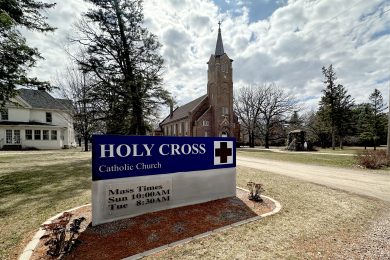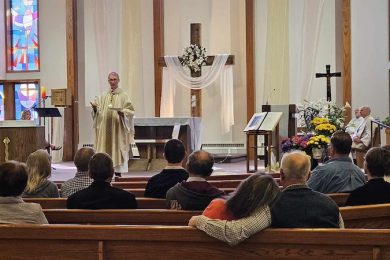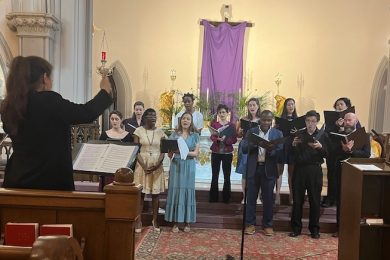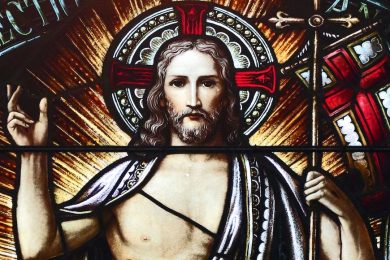Sixteenth Sunday in Ordinary Time
First reading: Wis 12:13-16-19
Responsorial Psalm: 86:5-6, 9-10, 15-16
Second reading: Rom 8:26-27
Gospel: Mt 13:24-43 or 13:24-30
By Kevin Perrotta
“We do not know how to pray as we ought,” St. Paul tells us today. But where’s the problem? There are so many prayers — the Hail Mary, the Book of Psalms, novenas, countless prayer books and, most basic of all, the Lord’s Prayer. When we don’t know how to pray, we can use those.
Established prayers, however, are not Paul’s solution to the problem of not knowing how to pray because, more literally, he is concerned with the problem of not knowing what to pray, and established prayers can’t solve this problem.
How can I know which set prayer is best? Is now the moment for a psalm of rejoicing or a psalm crying out for help? What should I pray for? That Dan gets the job he’s applying for? That my friend Richard is healed — or that he die a peaceful death?
I don’t know what to have in mind when I pray a prayer. When I get to “your will be done” in the Our Father, should I mean, “heal Richard” or “give him a painless death”?
Paul has been speaking about the journey we are making through this life. In Christ, God is leading us from this present age into eternity with himself. We can have a sense of anticipation, because we know it will be good to arrive at our destination.
But we cannot know the route. Only God knows that. Only he knows the blessings and sufferings by which he will bring us home to himself.
So to a great extent, at any point along the way, we don’t know what to pray for. It makes sense to pray for what seems best to us — that Dan would get the job, that Richard would make a remarkable recovery. But how can our prayers fit in with what God has in mind?
The answer, Paul indicates, is that God has placed his Spirit in us — his Spirit, that knows his mind — so that his Spirit prays with us. The Spirit can guide our choice of prayers. Even more, he prays with us in our deepest longings that cannot be put into words.
He makes our sighs and groanings into prayers. That is how close God has come to be with us. And in this way, the Spirit in us will pray us safely through the present troubled age and into the eternal kingdom.
Perrotta is the editor and an author of the “Six Weeks With the Bible” series, teaches part time at Siena Heights University and leads Holy Land pilgrimages. He lives in Ann Arbor, Michigan.





















